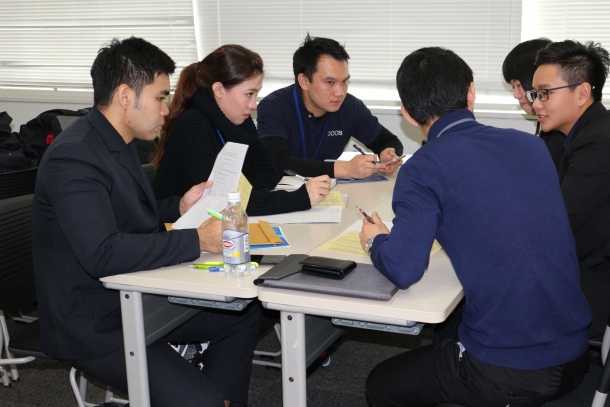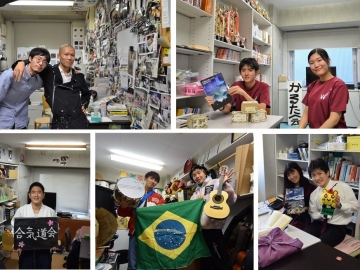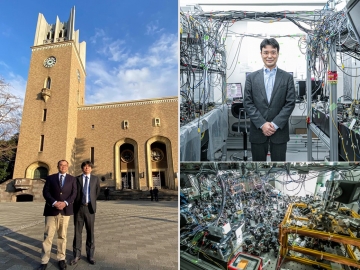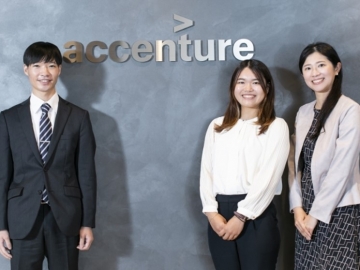
Professor Toshimasa Yanai graduated from Chukyo University and earned his Ph.D. from the University of Iowa in 1996. After teaching at the University of Otago in New Zealand and Chukyo University, he came to Waseda in 2008. His research interests include sport-specific movement analysis to increase performance and biomechanical analysis of motions, such as pitching and swimming, to identify and prevent injuries and disabilities.
In the 2017 QS World University Rankings, Waseda University earned a very high reputation by ranking 19th in the world and top in the nation for the sport-related subjects category. Behind this achievement, efforts made in research activities and education programs at the Health and Sport Sciences Unit are believed to have bore fruit. This Unit was formed under the Waseda Goes Global Plan selected for the Ministry of Education, Culture, Sports, Science and Technology (MEXT)’s Top Global University Project (TGU), which aims to increase the global presence of Japanese universities.
Waseda Weekly, the online magazine for Waseda students, spoke with Professor Toshimasa Yanai, Head of the Health and Sport Sciences Unit, to discuss the Unit’s achievements.
Interview with Professor Yanai
Waseda Weekly: We hear that the Health and Sport Sciences Unit has made a significant difference in improving the rankings for the sport-related subjects category in the QS World University Rankings. What exactly does this Unit do?
Yanai: To increase its global presence as a leading international university, Waseda is currently prioritizing funding and support for seven highly-regarded research areas. These research areas have formed independent units with goals to create a global network of learning among faculty and students, and to promote outstanding research and education programs at the University. The Health and Sport Sciences Unit is one of these units, and we aim to refine the quality of Waseda’s sport science research by partnering with world-class researchers at universities abroad.
The Unit allows not only researchers to strengthen international exchange, but students to also receive guidance from both Waseda University faculty and from overseas researchers, which is a great opportunity to learn from different perspectives and teaching methods. As a result, the qualities of Waseda University’s research activities and education programs have improved, hopefully contributing to our international reputation as well.
Waseda Weekly: What are the advantages of expanding international exchange for research?
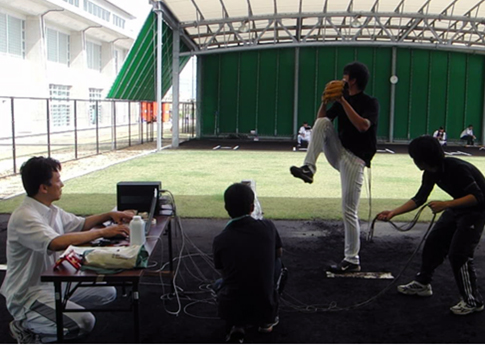
Professor Yanai (left) conducting research on biomechanical analysis of motion for throwing as well as hitting a baseball
Yanai: Studies in a broad range of fields take place at Waseda’s Health and Sport Sciences Unit, including physiology, medical research related to injuries, disabilities and illnesses, health promotion, competitive sports training, and coaching. We also cover sports business, the history of sports, anthropology, and the philosophy and techniques of budo (martial arts), which is popular abroad.
Many universities in the world have the tendency to house these research fields in separate colleges or departments, but Waseda is special in a sense that all aspects of sport sciences could be studied here. There is a huge advantage in that students can choose from a number of courses depending on their interests.
Waseda Weekly: What kind of education programs is the Health and Sport Sciences Unit involved with?
Yanai: Every year, we send three doctoral students to overseas universities for three to four months. The students participate in collaborative research at the host university and receive research guidance. Furthermore, four researchers from overseas are invited to conduct classes on their specialization in English for one to two months. These two are the pillars of our education programs. We also organize symposiums and workshops inviting researchers and graduate students from international partner institutions. Moreover, an English-based doctoral degree program has been implemented since September 2016, and we’ll be launching an English-based Master’s degree program starting in September 2018.
Waseda Weekly: Why accelerate international exchange?
Yanai: The purpose of accelerating international exchange in addition to accepting international students from around the world is to have students gain in-depth understanding of their specialization in English to a point where they can have discussions about it, training the students to become key players on the international stage. We hope that our students will take advantage of the opportunities available to them as their first step to internationalization.
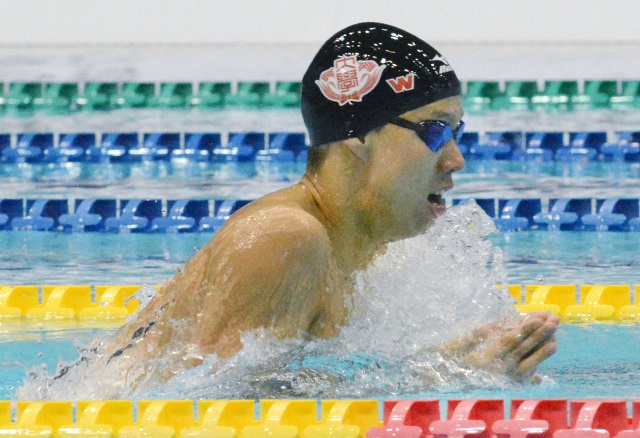
Ippei Watanabe, student at the School of Sport Sciences, marked 2:06.67, a world record for the 200m breaststroke, in January 2017
Waseda Weekly: What are the Unit’s future goals?
Yanai: Leveraging Waseda’s strength as a university strong in sports, we look forward realizing international exchange efforts through competitive sports. Many students in sport clubs on campus are students from the School of Sport Sciences, and the directors and coaches of the team are often times the School’s faculty. There is a huge difference in guidance between Japan and other countries. By going back and forth between Waseda and universities worldwide, the athletes will surely increase their performance and training levels. It would be wonderful if the University could implement programs, such as a joint degree program, that accepts credits from universities abroad and grants degrees from both Waseda and the partner institution, or a cotutorial, which issues certificates for research.
Waseda sees massive improvements in QS World Rankings by Subject 2017

